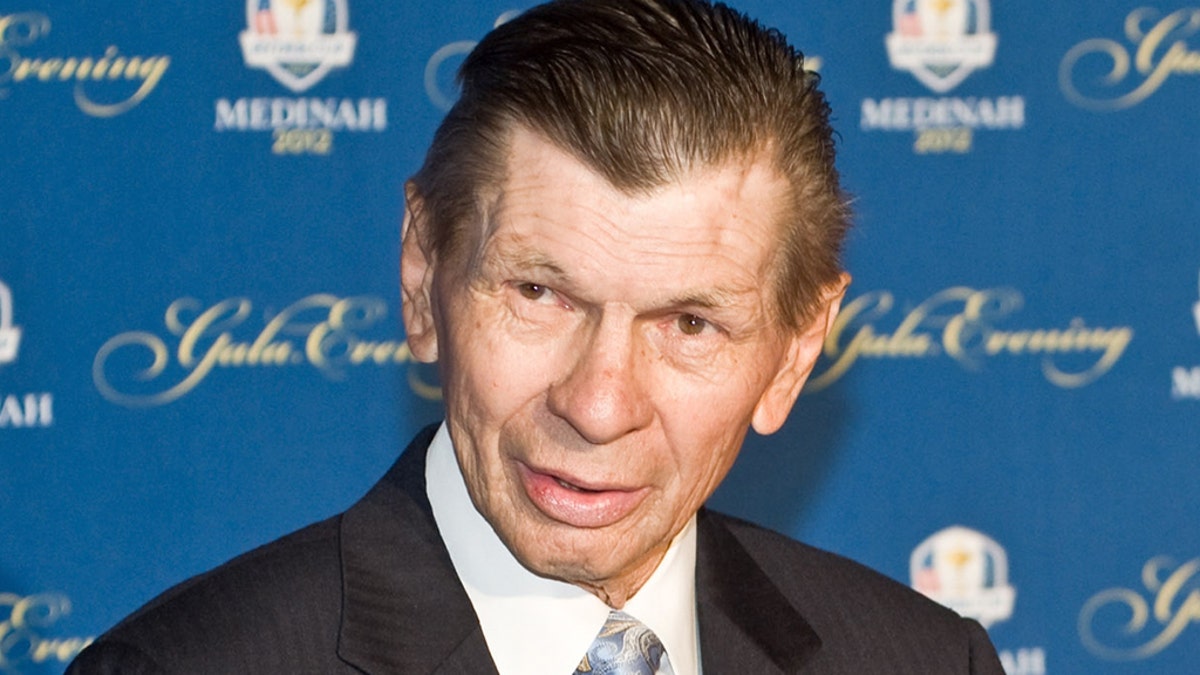Stan Mikita played for the Chicago Blackhawks for all 22 years of his National Hockey League career.
Stan Mikita, who scored 541 goals and recorded 1,467 points over a stellar 22-year career with the National Hockey League's Chicago Blackhawks, died Tuesday. He was 78.
A statement from the Mikita family confirmed his death, but did not give any details on a cause. Details of any services were not immediately available.
"There are no words to describe our sadness over Stan's passing," Blackhawks chairman Rocky Wirtz said in a statement. "He meant so much to the Chicago Blackhawks, to the game of hockey, and to all of Chicago. He left an imprint that will forever be etched in the hearts of fans - past, present and future."
A two-time winner of the Hart Trophy as the NHL's most valuable player, Mikita led the Blackhawks to the Stanley Cup in 1961. It was their first championship since 1938 and the last they would win until 2010.
In addition to his back-to-back MVP awards in 1967 and 1968, Mikita was a four-time winner of the Art Ross Trophy as the NHL's leading point-scorer (1964, 1965, 1967, and 1968). He remains the Blackhawks' all-time leader in points, assists (926), and games (1,394), while his 541 goals are second in franchise history behind Bobby Hull's 604 tallies.
Mikita also tops the Blackhawks' all-time lists for playoff assists (91), points (150) and games (155), a sign he was at his best for the biggest occasions.
Mikita became the first player to have his jersey retired by the Blackhawks in 1980, shortly after his retirement. He was inducted into the hockey Hall of Fame three years later.
Mikita's relationship with the Blackhawks deteriorated over time, but the franchise reached out to the former captain after longtime owner William Wirtz died in 2007 and his son, Rocky, took over.
Mikita and Hull each became a team ambassador and were honored with bronze statues outside the United Center.
Mikita was a regular at home games before his health deteriorated, drawing loud cheers when he was shown on the videoboard, often with Hull right beside him.
The 5-foot-9 Mikita was just 18 when he joined a mediocre Blackhawks franchise in 1959. He made his debut at home against mighty Montreal, and his first faceoff came against Jean Beliveau during his prime.
"I was still in a daze when I went out to take that faceoff against a legend like Beliveau, who was around 6-foot-5 and a towering presence on the ice," Mikita wrote in his 2011 book, "Forever a Blackhawk."
"He had to outweigh me by 60 pounds. The faceoff was in Montreal's end. I looked up at him from the circle and wound up staring at his belly button. That's how tall he was. My knees were shaking. My head was spinning. Somehow I got my stick down and managed to get the puck to our point man. Don't ask me who it was. I was too nervous to remember names."

Mikita, pictured in 2012, was born in present-day Slovakia, but moved to Canada as a young boy to escape Communism. (Getty Images)
But Mikita showed steady improvement at the start of his career, helping Chicago develop into one of the most feared teams in the league. He had eight goals and 18 assists in his first full season, and then helped the Blackhawks to their first NHL title in 23 years.
The 1960-61 team, coached by Rudy Pilous, went 29-24-17 in the regular season, finishing third in the NHL. Chicago then upset Beliveau and heavily favored Montreal, and beat Detroit in six games for the championship. Mikita had 19 goals and 34 assists in the regular season, and then added six more goals and five assists in 12 playoff games.
Mikita and the Blackhawks played for the Stanley Cup again in 1962, but lost to Toronto in six games. They also lost in the finals in 1965, 1971 and 1973.
The Associated Press contributed to this report.








































